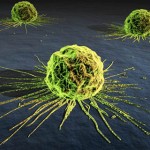Dear Thomas, My niece, who takes a daily two-minute break from facebook, sent me a message to ask: (1) how God, who knows everything, can know evil and still remain 100% actualized goodness; and (2) how God’s will can always be fulfilled given that there is evil in the world. I’d be grateful for your advice. Sincerely, Questioning in Quinnipiac.
1. The most important point here is to establish the difference between “good” and “evil”. Good is a transcendental quality of all being. The goodness of a thing is its being considered under the aspect of perfection or desirability. Evil, on the other hand, is a privation of perfection or goodness of a thing. Now some things include in their natures a natural potency to certain privations. The easiest example is the corruption of material life. Plants naturally have a tendency to decay and die. Death is, nonetheless, a privation of the goodness in the plant, and is thus evil, secundum quid. Now inasmuch as a creature is capable of greater perfection, it is also greater of a greater privation of that perfection for which it was created. Thus the old adage: The corruption of the best is the worst. Consequently the privation of perfections which ought to be present in humans constitutes greater evil than is possible in irrational animals or plants. Specifically, in human freedom, which flows from our capacity to know and to will, humans are capable of moral evil.
God knows all things, even (!) future contingent singulars. And the perfect knowledge of a thing includes all its potential accidental features. Now, the absence of a natural perfection is an accident of those things which fall into evil. Thus God knows evil. However, it is wrong to think this means that God knows evil per se or that God knows evil as an essence. To suggest that evil had is own principle of being or could exist in a pre-eminent way would be absurd, since such evil could not (by definition) exist. Being, after all, is convertible with Goodness, so to utterly lack goodness is not to exist at all. So when God knows evil, he knows it not as an independently existing reality in which the particular deficiencies of creatures participate, but as a potential or actual deficiency in the perfection of created things. Consequently, as Denys says, evil is known to the divine intellect the way a shadow is revealed by the absence of potential light upon a surface. And we know already that God is perfectly good, so the apparent contradiction has been resolved.
2. There are two problems here: (A) If created beings are instrumental causes by which God accomplishes his will, wouldn’t the deficiency of the instrument detract from the realization of the end for which it was used? (B) God’s being is identical with his willing his own being. But God’s being is perfectly good and thus God wills only that which is perfectly good. However, there is evil in created things. Thus God’s will must not be fulfilled in those things.
Answering both problems together, we first repeat what was said above: that evil has no positive existence, and that everything that is, is only insofar as it is good. Thus though there is imperfection in created things, God still wills them to be inasmuch as they are, and therefore their activity (which follows from their being) is a realization (however imperfect) of that positive being granted to it by God. Thus the deficiency of created things can in no way hinder God’s will from being realized, and since God as first cause orders all consequent created causes to his own ideas, the perfection present in the instrumental causes put to use by divine providence must be sufficient to accomplish its ultimate goal.
[Question and Response based on Thomas Aquinas’s Summa Theologiae Ia. qq.14-21.]
[Image of Thomas Aquinas from Wikipedia]

















